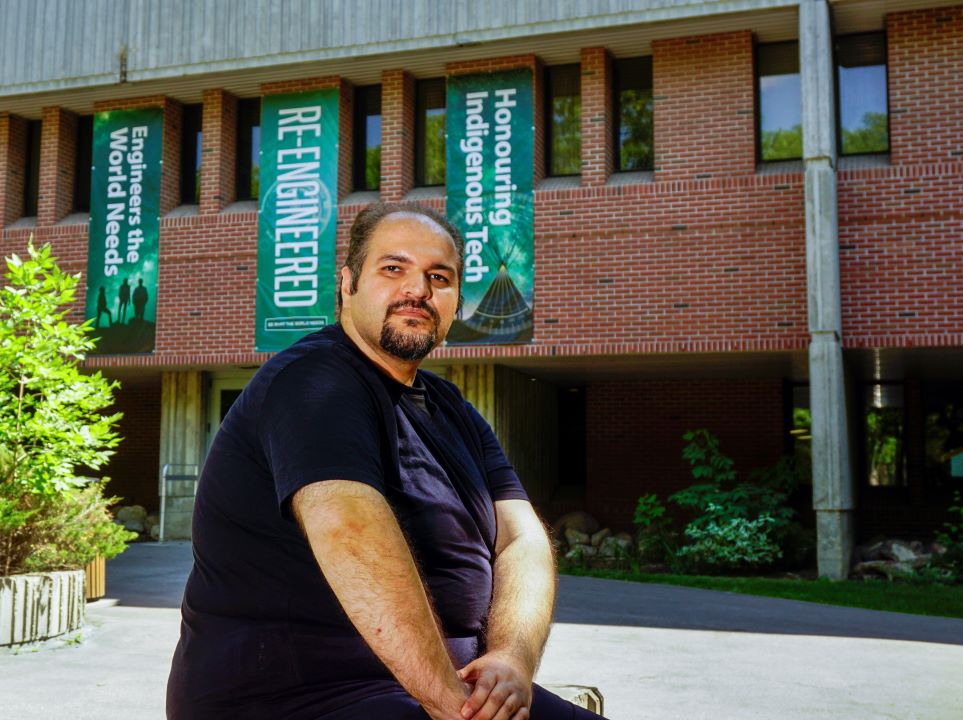
Didani awarded Vanier Canada Graduate Scholarship
The prestigious Vanier Canada scholarship is valued at $150,000 over three years.
Pezhman Zolfaghari Didani is one of four University of Saskatchewan (USask) doctoral students named a 2022 Vanier Scholar.
The others are Gilbert Adum, Lindsey Boechler and Cody Koloski.
The prestigious annual Vanier Canada Graduate Scholarships recognize academic excellence, research potential, and leadership skills in scholarly work. Each student will be awarded a scholarship valued at $150,000 over three years as they conduct their doctoral research programs.
“We are grateful for the support of the Vanier Canada Graduate Scholarship and that these impressive scholars have chosen USask for their graduate training,” said Vice-President Research Baljit Singh. “We know their emergence as leaders and high achievement in their chosen scholarly fields will help further establish our institution as a global leader in discovery the world needs.”
Research projects supported by the scholarship will investigate numerous social and scientific challenges that society faces, with focuses on education, health, medicine, and environmental sciences.
Building air purification systems that combat viruses
The COVID-19 pandemic has shown that airborne viruses can rapidly cause widespread disease in large populations.
Didani, a USask Engineering PhD student, is developing a high-performing air purification system that can remove tiny airborne pathogens from the air more efficiently than current air filters.
“In most indoor environments, such as large buildings, the central air conditioning system must circulate the air inside the building,” said Didani. “This phenomenon helps the pathogens, such as SARS-CoV-2, spread rapidly inside the buildings and infect many healthy persons.”
Didani notes that many methods have been proposed to remove pathogens from the air flowing through air conditioning systems, but many of these may introduce toxic chemicals or additional respiratory diseases, or the systems require frequent maintenance, limiting their effectiveness.
With supervision from USask College of Engineering professor Dr. Jafar Soltan (PhD) and College of Medicine associate professor Dr. Shelley Kirychuk (PhD), Didani plans to develop a device that will convert ozone gas to oxygen and active oxygen species that can rapidly attack and decompose a wide range of organic molecules. These species have the ability to inactivate airborne pathogens by damaging their structures and ceasing their reproduction. Didani would design the device to be compatible with current air conditioning systems.
“The device will be able to eliminate harmful chemicals and organic pollutants from the air,” said Didani. “Because of the non-selective nature of this novel air disinfection unit, we would potentially be able to eliminate organic pollutants and airborne pathogens that emerge in the future.”
You can learn more about the research of USask's other new Vanier Scholars on the USask News website.

